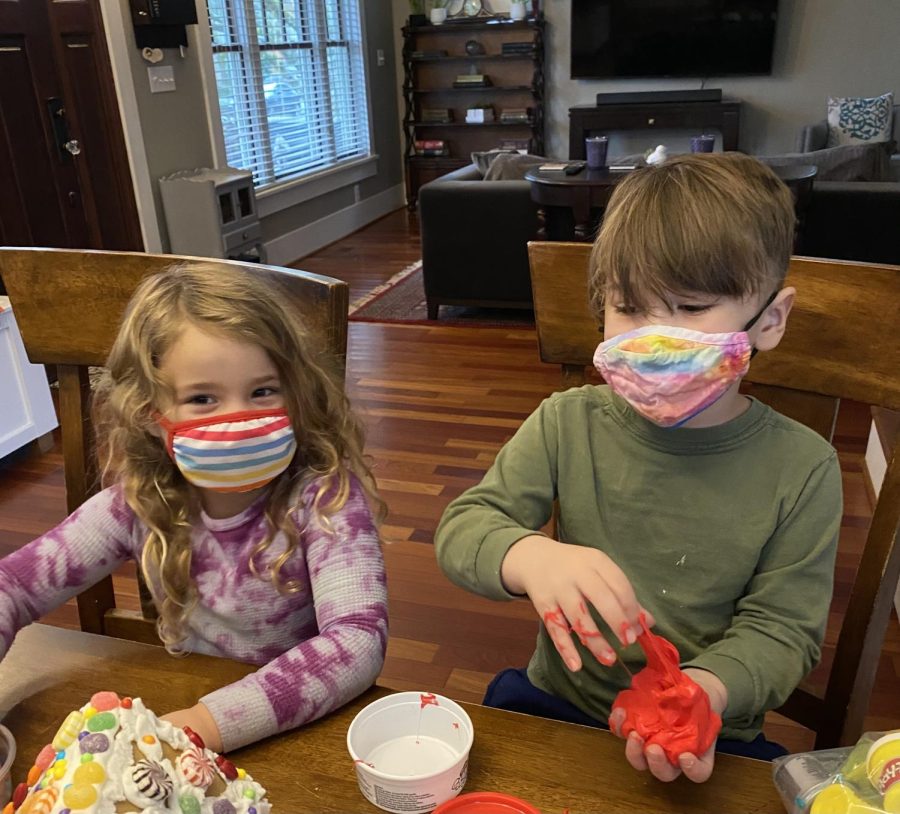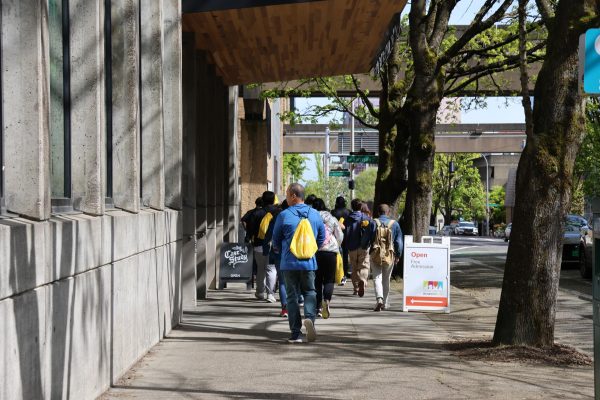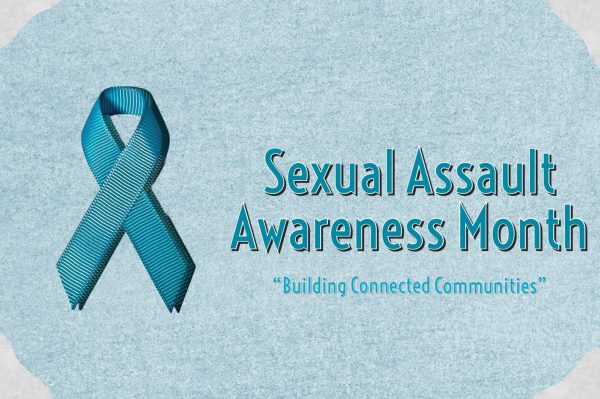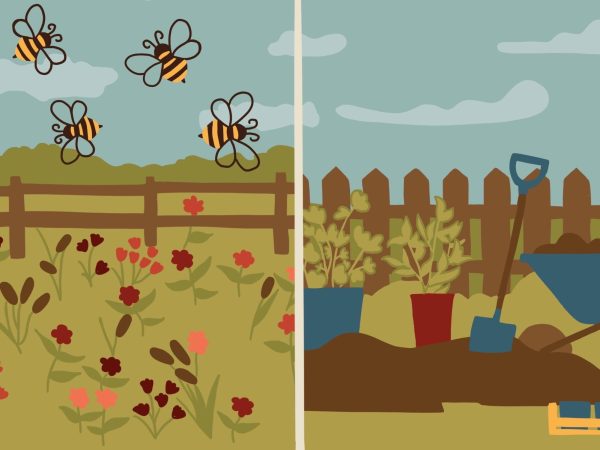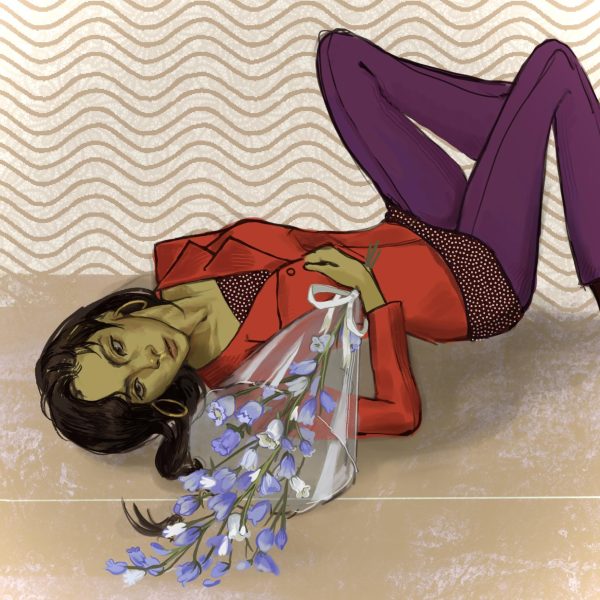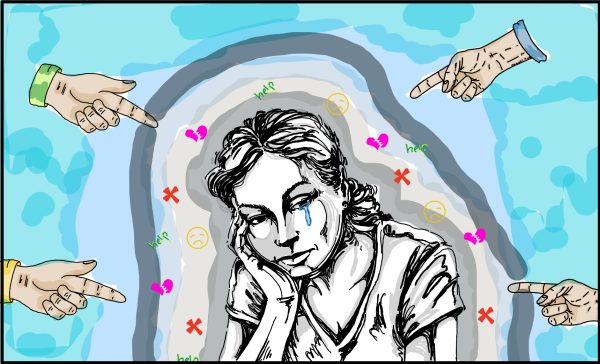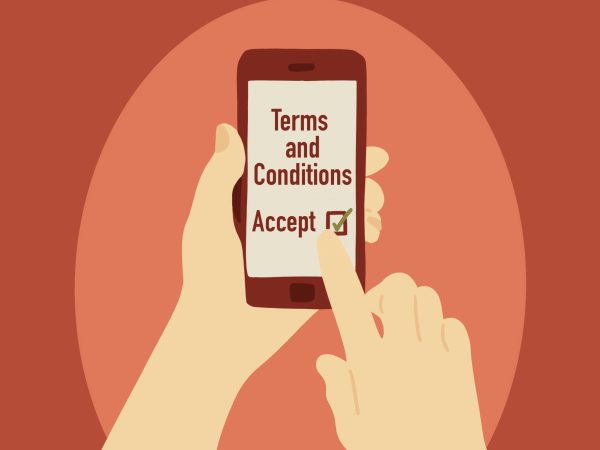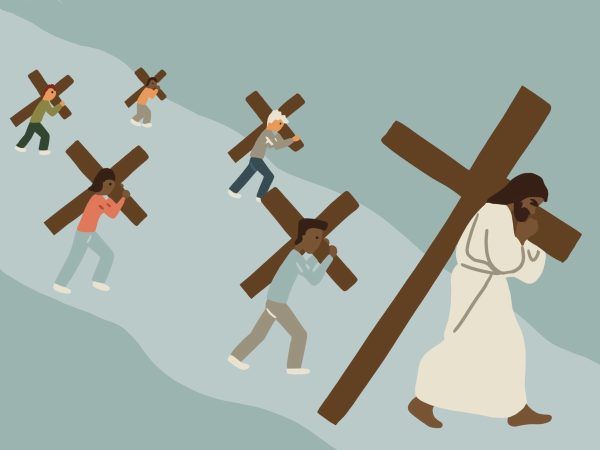The End of the Mask Mandate Provokes a Large Decision for Individuals
My four-year-old sister, Emery Eldon, wears a mask when hanging out with one of her friends.
March 9, 2022
I get it, you don’t want to wear a mask anymore.
It’s been two years of mask-wearing, social distancing, COVID-19 testing, and quarantining. We are all going through it. I understand the desire to rip that mask off, and never put it on again.
I do not want to wear a mask.
I do not believe anyone wants to wear a mask anymore.
However, wearing a mask is not about just one person. The act of wearing a mask provides safety for yourself, your friends, your family, and strangers you see in passing.
The mask mandate is coming to an end across the nation — and there have been lots of questions around how effective masks are.
Although it will now be optional to wear a mask, people need to recognize that COVID is still a real risk that must be taken seriously. As a result, masks should still be worn when in populated areas, around others who are at greater risk, and if you feel any symptoms.
The CDC has come out with newer statistics regarding the effectiveness of different kinds of masks including cloth, medical-grade, and N95/KN95 masks — all of which have different rates of protection.
Cloth masks have the lowest protection rates of the three, with a 56% chance of lowering the odds of contracting COVID-19, while medical grade surgical masks lower these odds by 66%. The highest protection from COVID-19 comes from N95/KN95 masks, which lower one’s chance of contracting COVID-19 by 83%.
The state of Oregon has declared that the statewide mask mandate will end on Saturday, March 12, as COVID-19 hospitalizations continue to decline. Washington is set to end their mask mandates on the same day.
In California, the indoor mask mandate has been lifted for vaccinated people, and was lifted for unvaccinated people on Tuesday, March 1. The mask mandate will end for California schools on Saturday, March 12, but the state continues to recommend wearing masks in the classroom.
The CDC has relaxed mask guidelines for states across the U.S. that have low COVID-19 hospitalization rates; accounting for around 90% of communities in the United States — yet the agency still encourages mask-wearing in high-risk areas.
The CDC’s guidelines cannot overrule state or federal mask requirements, although all U.S. states have plans to lift their own mask mandates. Oregon, Washington and Hawaii are the few states which have waited to lift the mandate.
“As we learn to live with this virus, we must remain vigilant to protect each other and prevent disruption to our schools, businesses, and communities — with a focus on protecting our most vulnerable and the people and communities that have been disproportionately impacted by COVID-19,” Oregon Governor Kate Brown said in a public statement on Feb. 28.
On Saturday, March 12, it will be up to individual school districts to decide on mask regulations.
For the past two years, I wish I could say I was an avid supporter of wearing masks. I would be lying if I said that was true. There have been times when I haven’t worn my mask — and that was a decision I made without considering the other people inside and outside of my circle.
After Saturday, March 12, wearing a mask will be a decision. I encourage every single person to think about who in your life is affected by that decision.
I will be thinking about my little sister, who is four years old. She has grown up wearing a mask. She attends a local Montessori preschool, and like most students in Oregon, has been asked to wear a mask for her safety and for the safety of the people around her. She is unable to get the COVID-19 vaccine, and so when she is exposed to the virus through her school, she is forced to quarantine.
This is not a big deal for her education since she is only in preschool, but inconsistent attendance at preschool places a burden on my parents to find childcare.
Not wearing a mask may not affect you individually, but I would encourage you to think about any younger friends or family you have who don’t have the same protections you may have. Think about the older friends and family in your life who could get sick but not recover as easily as you.
Wearing a mask will be your choice. It should be something you think about with compassion and a sense of the people around you.
It’s up to you.


